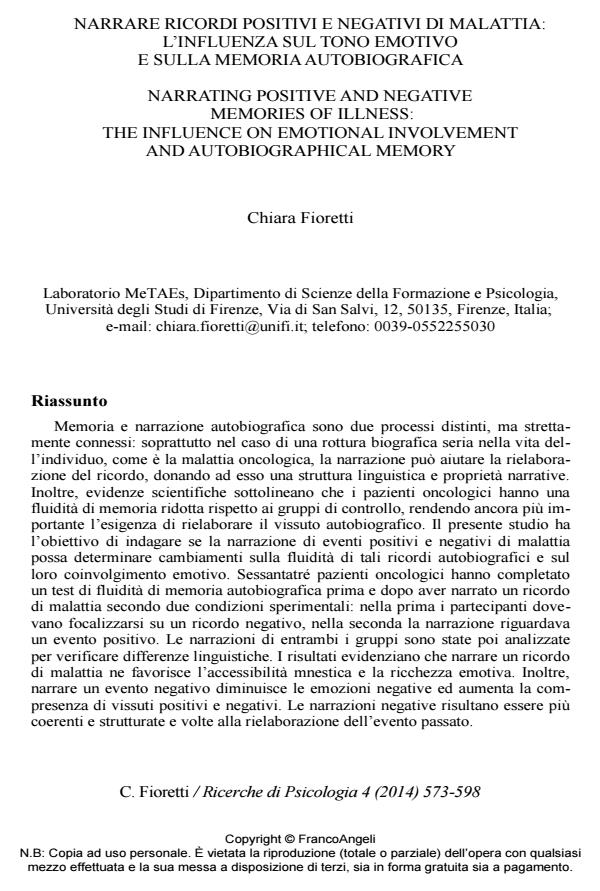Narrating positive and negative memories of illness: the influence on emotional involvement and autobiographical memory
Journal title RICERCHE DI PSICOLOGIA
Author/s Chiara Fioretti
Publishing Year 2015 Issue 2014/4
Language Italian Pages 26 P. 573-598 File size 241 KB
DOI 10.3280/RIP2014-004003
DOI is like a bar code for intellectual property: to have more infomation
click here
Below, you can see the article first page
If you want to buy this article in PDF format, you can do it, following the instructions to buy download credits

FrancoAngeli is member of Publishers International Linking Association, Inc (PILA), a not-for-profit association which run the CrossRef service enabling links to and from online scholarly content.
Autobiographical memory and autobiographical narrative are distinct concepts, which refer to distinct processes having reciprocal influences: in the case of biographic breakdown such as cancer, narrative can help the re-elaboration of memories giving it a linguistic format and narrative proprieties. Furthermore, scientific evidences have underlined that oncological patients have an inhibition in autobiographical memory compared with control groups. The present study aims to explore if narrating positive and negative past events of illness changes the fluency and the emotional involvement of autobiographical memory. Sixty-three oncological patients completed two times a memory Fluency Task, before and after a narrative task implemented in two experimental conditions: one group had to focus on a negative memory related to the illness experience, the other had to narrate a positive illness event. Narratives have been transcribed and analyzed in order to explore linguistic differences between the two groups. Results show that narrating a memory of illness improves the availability and the emotional richness of it. Furthermore, negative narratives decrease negative emotions and increase the co-presence of positive and negative feelings. Negative narratives are more coherent and focused on the re-elaboration of the past life event than positive ones.
Keywords: Autobiographical memory, autobiographical narrative, illness transition, emotions, positive narrative, negative narrative.
Chiara Fioretti, Narrare ricordi positivi e negativi di malattia:l’influenza sul tono emotivo e sulla memoria autobiografica in "RICERCHE DI PSICOLOGIA " 4/2014, pp 573-598, DOI: 10.3280/RIP2014-004003